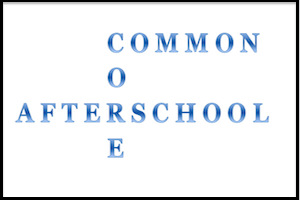Professional Development
NAA publishes fresh, new content every week covering a wide variety of topics related to the field of aftershool. In addition, NAA offers a variety of opportunities for virtual professional development (PD) through meaningful content, conversations and connections. Click here to see full descriptions of virtual PD offerings.
Strategies to Help Principals and Afterschool Program Leaders... CLICK!
Wednesday, 18 September 2013 04:45We all know the feeling. We meet someone new for the first time, and for some reason, things between us just "click." Some couples describe this connection as "love at first sight." On a professional level, quick-set connections can negatively or positively affect our experiences and relationships for years.
How to Make Caring Cool
Monday, 16 September 2013 00:00Kids want to feel safe and cared for both in and out of school. Some children don't receive the loving care they should when they get home so who will be the one who will care for them? You. Take some time and check out these helpful tips for caring for kids in your program and teaching them how to care for others too.
Afterschool and Common Core
Tuesday, 10 September 2013 00:00There has been much discussion recently about Common Core and the impact it could have on student achievement, teacher preparation and school performance. But what impact might it have on afterschool? Or, perhaps I should ask–what impact can afterschool have on Common Core?
How Financially Healthy is Your Organization?
Thursday, 05 September 2013 11:26Increasingly, out-of-school-time (OST) programs—including those that operate before and after school, on weekends and holidays, and during the summer—are integral components of children’s academic and social development.
The Art of Mastering Difficult Conversations with Staff
Thursday, 05 September 2013 00:00No one likes to have that difficult, awkward, and uncomfortable conversation with a staff member who just doesn't seem to get it. If you want to have a productive conversation, you've got to master the art of communicating effectively.
An AfterSchool Leadership Lesson
Friday, 23 August 2013 10:14Over time, assumptions develop that paralyze thinking, slow growth, and stymie progress in any profession. Assumptions influence how afterschool professionals respond to what they do and how they do it. Because of that, when asked the more important question of why an afterschool programs exists, many people stumble and mumble a response. Those who lead best clearly understand their organization's mission and can succinctly explain WHY they (and the organization) do WHAT they do and HOW they do it. But all too often, we are first asked WHAT we do? We need to learn to reorder the questions, starting with WHY.
Instilling a Work Ethic in the Emergent Afterschool Workforce
Friday, 23 August 2013 06:08Have you ever been asked to write a letter of recommendation for an employee or co-worker yet privately had reservations? You think they should know the right things to do, but they fail to do them adequately. Even though they possess some admirable skills, they lack the core values of a positive work ethic that every employer hopes to find when interviewing and hiring.
If you've been in that situation, or if you feel that, in general, your staff's work ethic needs improvement, it is advisable to take time to talk about, teach, and clarify the specifics of what you expect from every employee. Use this leadership lesson as guide for developing "teaching conversations" about work ethic values.
Professionalism
Professionalism implies that you look your best. Afterschool professionals value fashion and proper appearance, including attire, hair styling, hygiene, and use of makeup. Knowing how to dress for success is just as important to be demonstrated by those in hourly, frontline staff positions as it is by the boss. Professionals display manners, courtesy, and use language appropriately. Clarity and adherance to the program's dress code is crucial to development of professionalism.
Attitude
It's simple. Those with a good work ethic smile and play nice. They show gratitude. They're polite. They say "please" and "thank you." An attitude is an outward display of internal views. It's where perceptions become realities. Those with a positive attitude should mentor new hires. Positive attitudes can be contagious. Develop a checklist of observable positive attitude attributes. Teach them to your staff.
Reliability
It's hard to write a recommendation for tardy, unreliable employees. Nothing is more basic or foundational to a good work ethic than reliability. Yet, too many people have become accustomed to making excuses. For too many people, reliability is becoming a "yeah but" value. Program leaders shouldn't wait for infractions to occur. Teach your expectations of punctuality, dependability, and self-responsibility. Those who master the value of reliability will always be in high demand!
Initiative
Initiative requires ambition. Strive to do your best and accomplish more than is expected. Model this value and others will emulate it. If you can specifically write about how an employee exhibited pride and passion in every work task, it will catch the eye of potential employers. Those with initiative don't settle for minimum standards. They soar beyond.
Respect
To gain respect, play by the rules and teach employees to do the same. Respect implies being able to show obedience, acceptance, and conformity. Workers must respect their peers, managers, students, parents, and the parameters of their contract. The development of mentoring partnerships can greatly impact efforts to instill
respect into an organization.
Integrity
Employers seek workers that are honest and speak the truth. Integrity must be the foundation of every afterschool program and part of every code of conduct. There is no place for dysfunctional or antisocial individuals in the afterschool workforce.
Competence
Every job requires a specified level of requisite knowledge and competence. Those who willingly read and engage in professional development because they want to learn and continuously improve gain the highest levels of recognition. Those individuals who demonstrate the habits and ideals of a positive work ethic need never worry about a performance review. Nor will they need worry about what a supervisor will write in a recommendation. The description of their work ethic will say enough!
Ideas on How to Get Families Involved
Friday, 23 August 2013 00:00The best way to get families involved? Get them engaged with what their kids are doing. Gain their interest and make parents feel comfortable with fun and enjoyable family-centered activities.
Build a Solid Team
Friday, 23 August 2013 00:00It's not just about cooperation, its about making every team member feel valued and important. You won't be able to get everything done without a great, solid team helping you along the way. So what do you do in order to build a strong team?
How Do You Deal With a Defiant Student?
Friday, 23 August 2013 00:00Defiant children are never fun to deal with. Know that it is a power struggle and as the program leader, you need to come out on top as the one in charge, but also keeping the child's respect.
National AfterSchool Association • 2961A Hunter Mill Road, #626 • Oakton, VA 22124 • info@naaweb.org










